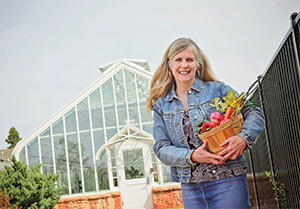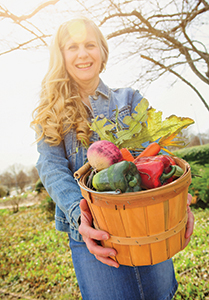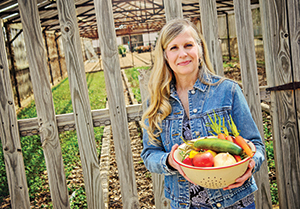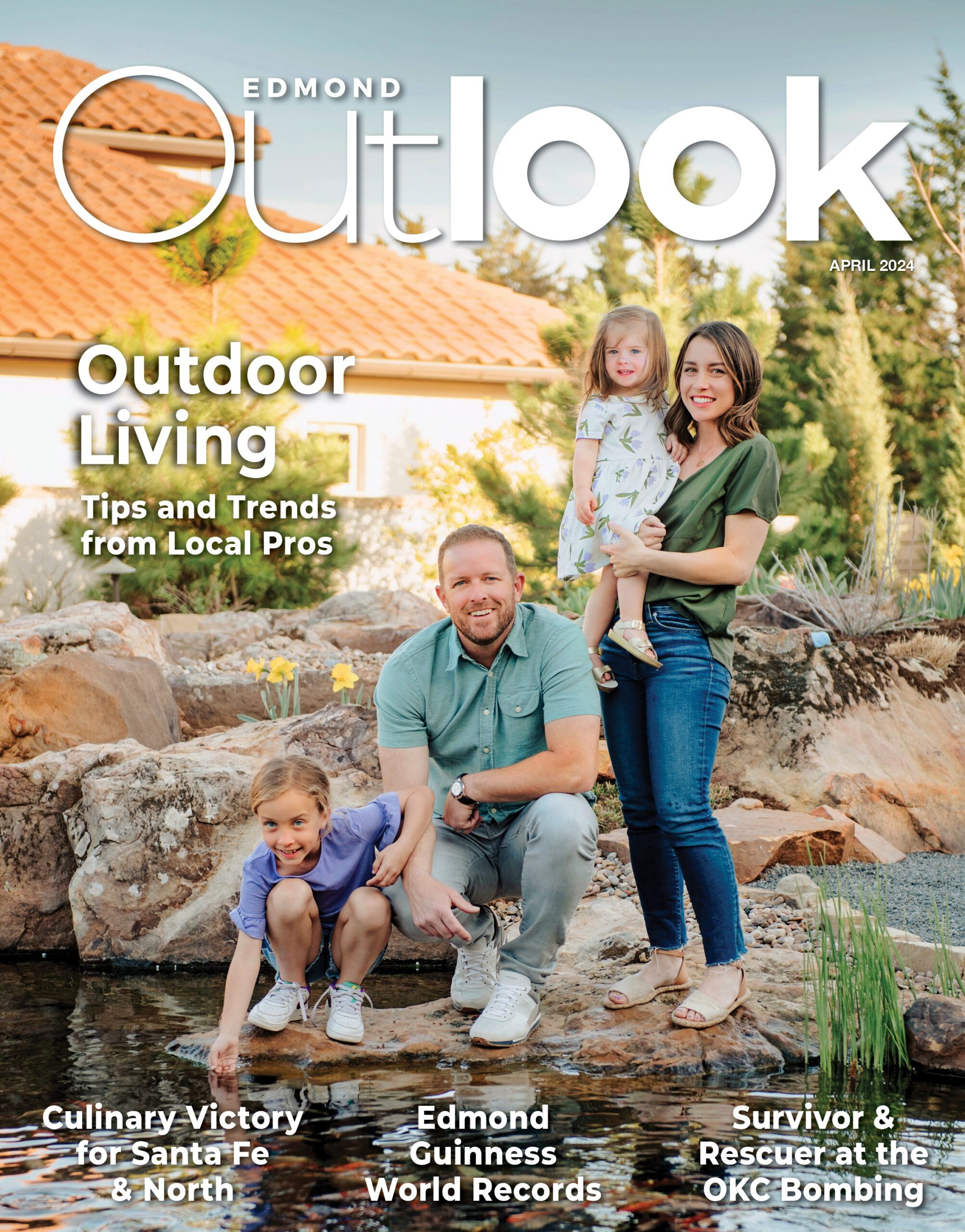Planting the Seeds
In Pam Patty’s office at Integris Health Southwest Medical Center, plastic food takes up the majority of space. Little rubber grapes and shiny plastic apple slices compete with plates of fake pie and candy for room on her shelves. Piles of baked beans are sitting on top of the pretend-meat. Fake food is everywhere.
 As a registered dietitian and certified diabetes educator at Integris, Patty is an expert on food—healthy food, unhealthy food, organic food and processed food. She helps students and adults learn about healthy eating, but she has a new passion now.
As a registered dietitian and certified diabetes educator at Integris, Patty is an expert on food—healthy food, unhealthy food, organic food and processed food. She helps students and adults learn about healthy eating, but she has a new passion now.
Patty wants her clients, especially those in economically-disadvantaged homes, to learn how to grow their own food.
“In my role in Integris’ Community Wellness Department, I go into the community and see what the needs are and find solutions,” said Patty. “When I saw what we call ‘food deserts’—where there is a lack of access to good, healthy food—I thought, ‘What if I teach people how to grow their own food?’”
To help meet that need, and to bolster her own knowledge of the art of gardening, Patty became an Oklahoma Master Gardener, a title given through the Oklahoma State University extension program.
The Oklahoma Master Gardener Program provides horticultural information to the citizens of Oklahoma through the volunteer efforts of the Master Gardeners. To become a Master Gardener, Patty attended a 12-week, eight-hour-a-day program of intense training to help answer questions related to gardening and the environment.
Now, she’s taking that green thumb out to schools and the community to help grow the next generation’s passion for “real food.”
Growing Knowledge
 In her role as a community dietitian with Integris Health, Patty aspires to see every family in Oklahoma eat as healthy as possible. She found that the quickest way to share her Master Gardener knowledge was to share it with children first. In 1999, Integris Health partnered with the Stanley Hupfeld Academy, a school that was performing so badly that it was in danger of being closed.
In her role as a community dietitian with Integris Health, Patty aspires to see every family in Oklahoma eat as healthy as possible. She found that the quickest way to share her Master Gardener knowledge was to share it with children first. In 1999, Integris Health partnered with the Stanley Hupfeld Academy, a school that was performing so badly that it was in danger of being closed.
Today, that school is considered a “blue ribbon” school, and every student is paired individually with a mentor. As one of the mentors, Patty teaches the students about food.
“The first program I did was a fourth grade baking class,” she said. “I took the recipes I learned 30 or 40 years ago in my home economics class and taught them to make the same things, like healthy pancakes, muffins, yeast rolls and healthy pizza.” No matter what age, food is the center of wellness, Patty believes. Give a community the tools to understand how to grow, cook and choose food, and that community has ownership of its health. That’s when Patty knew that learning more about gardening could only further that goal.
At Stanley Hupfeld, students are learning that lesson and taking it home. Each grade has a plot in the school garden to grow specific crops like watermelon, okra, peppers or tomatoes. The students learn how to cook the fresh vegetables, and in turn, they take that knowledge home to their parents. “The goal isn’t to make your garden for you, but show you how to grow,” said Patty.
Neighborhood and community gardens provide fresh produce and plants with the intent of improvement and community building. These gardens can range from small plots of vegetables to large beautification projects. The community gardens provide not only food, but also income to impoverished areas.
“For instance, in one area I know of, the crime rate was among the worst in the city. Neighbors stayed indoors,” Patty said. “A community garden was started, and within months, you saw a sense of solidarity. Neighbors came out, met each other and the crime rate dropped incredibly.”
Getting Her Hands Dirty
 As a Master Gardener, Patty helps to answer questions about gardening from all over the state. She explains the nearly-perfect magic of soil and helps others understand how to work with the soil instead of against it. The goal is to “work with nature” in a beneficial way. “We need to educate people about the balance of nature,” she said. “Show them that not all weeds are bad, that certain insects are helpful and that garden snakes are actually okay.”
As a Master Gardener, Patty helps to answer questions about gardening from all over the state. She explains the nearly-perfect magic of soil and helps others understand how to work with the soil instead of against it. The goal is to “work with nature” in a beneficial way. “We need to educate people about the balance of nature,” she said. “Show them that not all weeds are bad, that certain insects are helpful and that garden snakes are actually okay.”
“I see myself scouting the needs of the community to see what is working and what isn’t when it comes to health,” Patty said. “We can all promote growing food. The truly overwhelming fact is that we are a nation of chronic sickness, and this will be the first generation that will not outlive their parents. Food is at the center of wellness. Let’s teach people to grow their own food.”
For more information on the Oklahoma Master Gardener program, visit okcmg.org.




